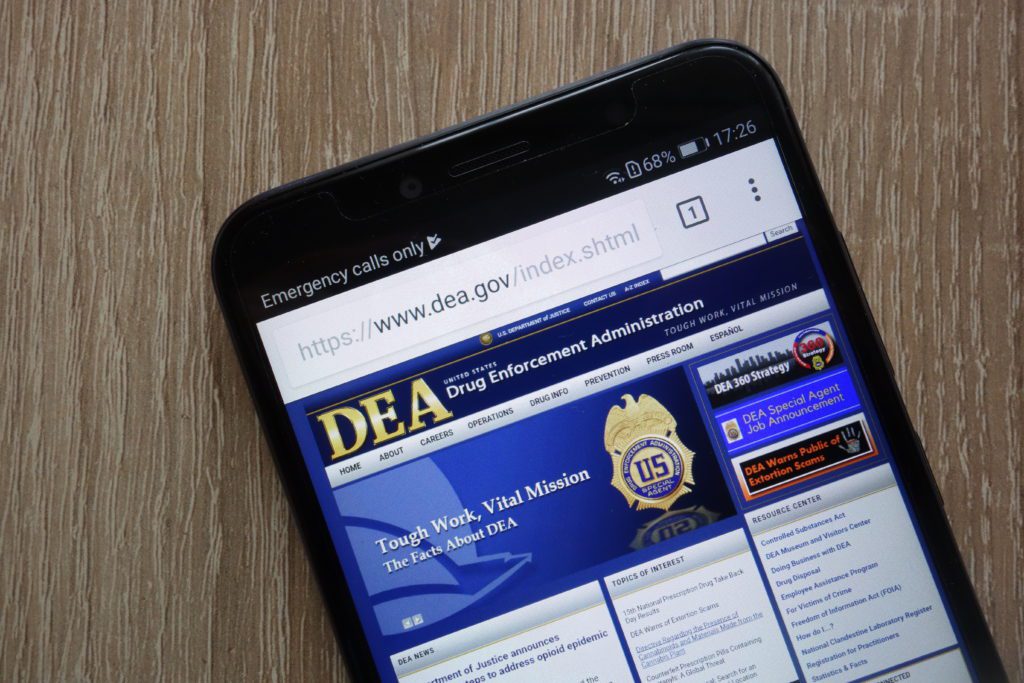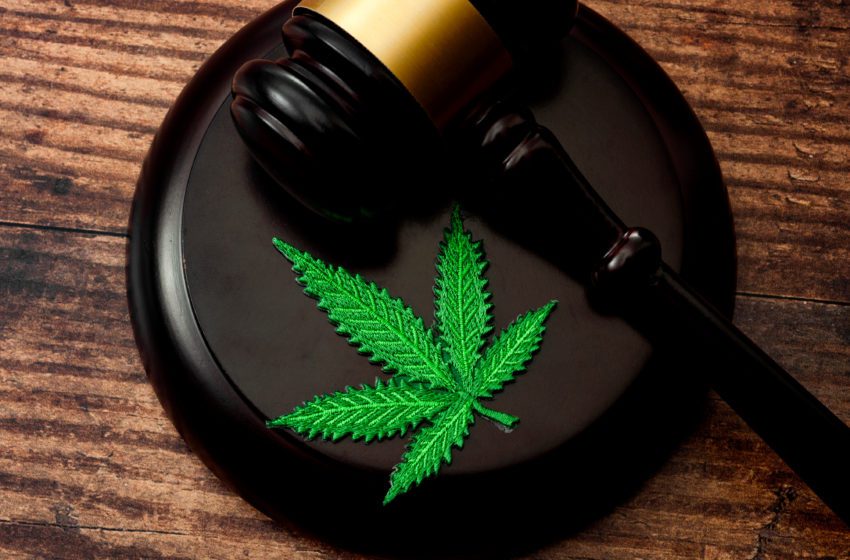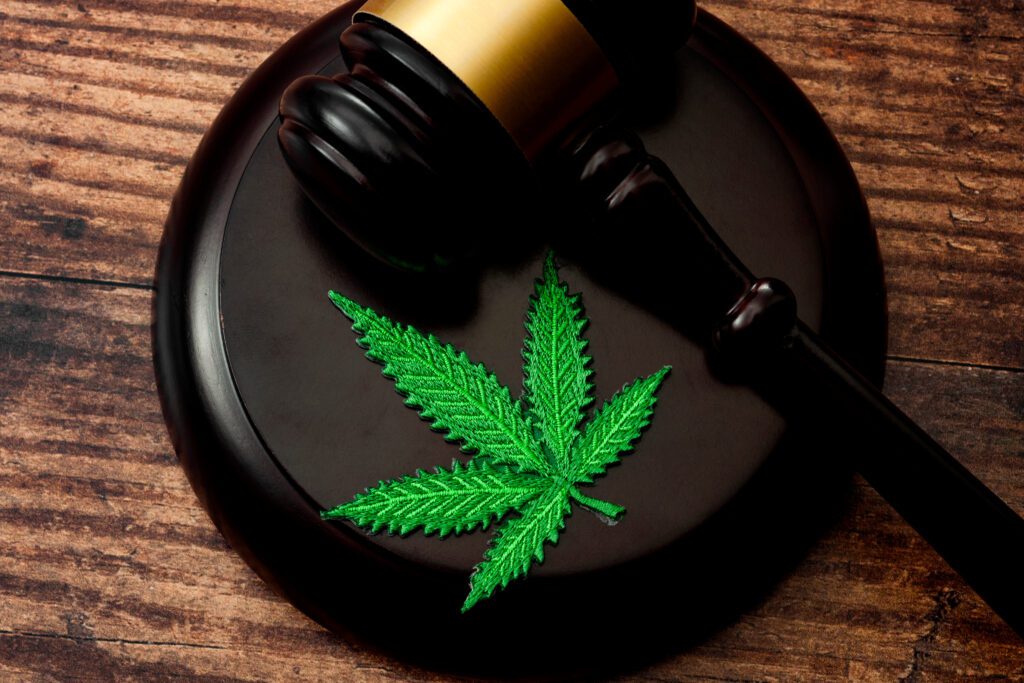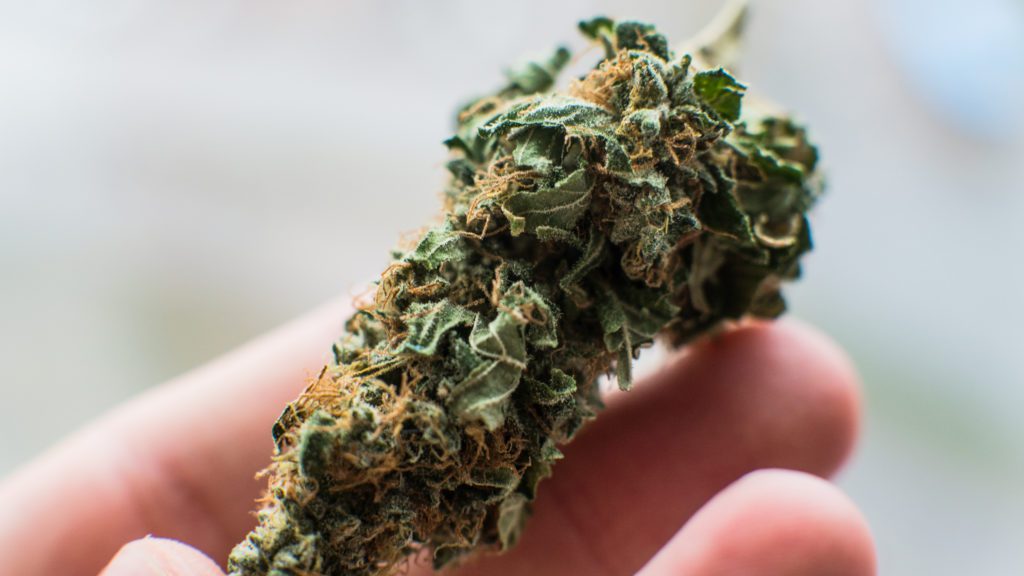
The U.S. DEA says cannabis-derived delta-9 THCA does not meet the definition of hemp under the CSA.
By Rod Kight
The U.S. Drug Enforcement Administration (DEA) issued a letter1 on June 9, 2023, in response to a request about information regarding, among other things, tetrahydrocannabinolic acid (THCA). Note that I was only able to locate a copy of the letter on Reddit. I had to compile a series of PNG images of it into a single document. I believe, but cannot confirm, that the letter is in response to an inquiry by Vice Media Group.
In the letter, the DEA states the following about THCA:
“In regard to delta-9 THCA, Congress has directed that, when determining whether a substance constitutes hemp, delta-9 THC concentration is to be tested ‘using post-decarboxylation or other similarly reliable methods.’ 7 USC § 1639p(a)(2)(A)(ii)2; 7 USC § 1639q(a)(2)(B).3 The “decarboxylation” process converts delta-9 THCA to delta09 THC. Thus, for the purposes of enforcing the hemp definition, the delta-9 THC level must account for any delta-9 THCA in a substance…. Accordingly, cannabis-derived delta-9 THCA does not meet the definition of hemp under the Controlled Substances Act because upon conversion for identification purposes as required by Congress, it is equivalent to delta-9 THC.”

Is the DEA right?
The answer is “it depends.” If the DEA is addressing the legal status of hemp that is in production (i.e., pre-harvest hemp), then it is correct. As I have previously discussed,4 all hemp must pass a “post-decarboxylation” test, commonly known as a “total THC” test, in order for it to be harvested. However, for hemp that is postproduction, i.e., hemp that has passed a post-decarboxylation test and been harvested, the sole legal metric for determining its legal status is its delta-9 THC levels. In other words, if we read the DEA’s letter to contend that postproduction hemp is subject to a post-decarboxylation test, then it is wrong.
The post-decarboxylation test does not apply to postproduction hemp. The two statutes cited by the DEA in its letter are the only two places in the Agriculture Improvement Act of 2018, commonly known as the 2018 Farm Bill, that the term “post-decarboxylation” appears. They both apply solely to hemp production.
In the first statutory provision, 7 USC § 1639p(a)(2)(A)(ii), Congress sets forth the criteria that states and Indian tribes must comply with in order to “have primary regulatory authority over the production of hemp” within their jurisdictions. The second statutory provision, 7 USC § 1639q(a)(2)(B), is similar in that it sets forth the criteria that the U.S. Department of Agriculture (USDA) shall use to “monitor and regulate [hemp] production” in states that do not have an approved hemp plan and thus do not have primary authority over hemp production within their jurisdictions (state and tribal hemp plans are available at www.ams.usda.gov/rules-regulations/hemp/state-and-tribal-plan-review).
The key word in the above provisions is “production.” In law, we refer to a word with a specific and defined legal meaning as a “term of art.” In the context of hemp, “production” is a legal term of art. Under 7 CFR § 990.1,5 to “produce” means “To grow hemp plants for market, or for cultivation for market, in the United States.” Additionally, 7 CFR § 718.26 defines a “producer” as “an owner, operator, landlord, tenant or sharecropper who shares in the risk of producing a crop and who is entitled to share in the crop available for marketing from the farm or would have shared had the crop been produced. A producer includes a grower of hybrid seed.” To produce hemp means to grow it.
Since the post-decarboxylation test clearly applies to producers, the DEA is correct when it states that “for the purposes of enforcing the hemp definition, the delta-9 THC level must account for any delta-9 THCA.” A hemp producer’s crop must not have total THC concentrations exceeding 0.3 percent by dry weight in order to harvest it. However, once that crop passes the test and is harvested, no additional test is required under federal law.
“At that point, meaning post-harvest, the sole statutory metric under federal law for determining whether harvested cannabis material is lawful hemp or illegal marijuana is its delta-9 THC levels. In fact, the DEA stated this very clearly in a letter dated January 6, 2022:7 “[T]issue culture or any other genetic material that is derived or extracted from the cannabis plant such as tissue culture and any other genetic material that has a D9-THC concentration of not more than 0.3 percent on a dry weight basis meets the definition of “hemp” and thus is not controlled under the CSA.”
This was not the first time the DEA said that Delta-9 was the sole factor. During a video webinar8 called a “Town Hall with USDA and DEA” conducted by the Florida Department of Agriculture and Consumer Services on June 24, 2021, the DEA representative stated: “I’ll be very, very deliberate and clear. At this time, I repeat again, at this time, per the Farm Bill, the only thing that is a controlled substance is delta-9 THC greater than 0.3 percent on a dry weight basis.”
The 9th Circuit Court of Appeals has also weighed in on this issue, stating: “[T]he only statutory metric for distinguishing controlled marijuana from legal hemp is the delta-9 THC concentration level.” 9
So, the DEA is right that Congress requires a post-decarboxylation test for hemp production. But, once hemp has been deemed to be compliant and allowed to be harvested, the “post-decarboxylation” test no longer applies. You may reasonably ask how a crop that passed a total THC compliance test could be harvested and have flowers with no more than 0.3 percent delta-9 THC but with high concentrations of THCA. I discuss that in a companion article.10
In summary, this DEA pronouncement is bound to create more confusion in an already confusing area of law; however, it should properly be read as simply restating the fact that hemp producers must comply with the total THC test in order to harvest their hemp. Post-harvest (i.e., postproduction), the 2018 Farm Bill’s definition of hemp clearly states that the delta-9 THC levels are what matter, not the levels of THCA.
Finally, I should note that the DEA also addressed other cannabinoids in its letter, including hexahydrocannabinol (HHC), which it finds to be an illegal synthetic form of THC that does not naturally occur in the cannabis plant. There is contrary evidence to this position, namely that HHC is naturally produced in cannabis seeds,11, 12 but that issue is for a future discussion.
Based in Asheville, NC, Rod Kight is a renowned attorney in the cannabis industry.
This article is not intended to be legal advice and should not be used as such. The matters discussed are novel and involve complicated and unsettled legal issues. Before making any decisions regarding THCA, you should first consult with an experienced attorney.
1 https://cannabusiness.law/wp-content/uploads/DEA-THCA-and-HHC-letter.pdf
2 www.law.cornell.edu/uscode/text/7/1639p
3 www.law.cornell.edu/uscode/text/7/1639q
5 www.ecfr.gov/current/title-7/subtitle-B/chapter-IX/part-990/subpart-A/section-990.1
6 www.ecfr.gov/current/title-7/subtitle-B/chapter-VII/subchapter-B/part-718/subpart-A/section-718.2
7 https://cannabusiness.law/dea-seed-letter-triumph-or-trap/
8 https://cannabusiness.law/is-d8-from-hemp-a-controlled-substance-dea-says-no/
9 https://cdn.ca9.uscourts.gov/datastore/opinions/2022/05/19/21-56133.pdf
11 www.thieme-connect.de/products/ejournals/abstract/10.1055/a-1110-1045
12 https://pubs.rsc.org/en/content/articlelanding/2016/NP/C6NP00074F




